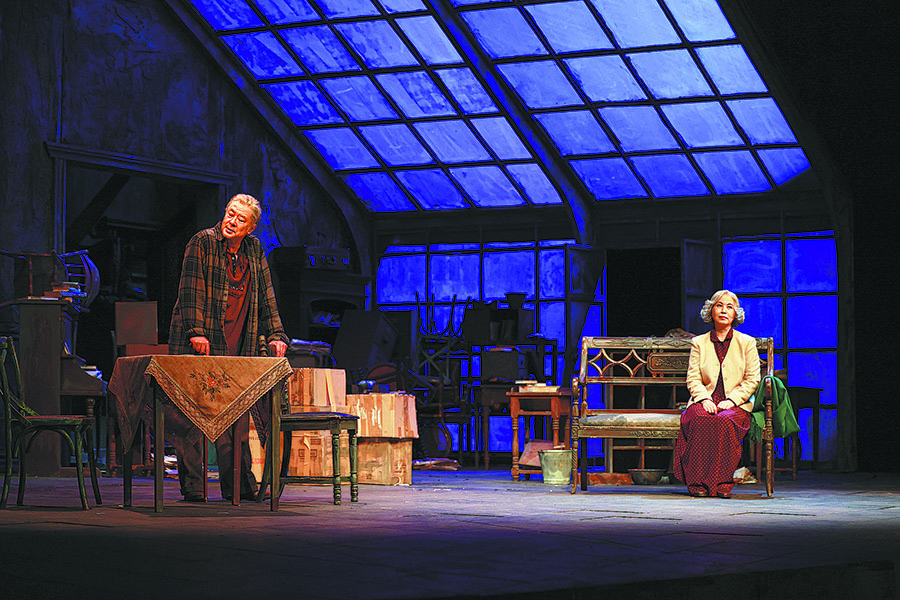Play puts cards on the table


Pu, 71, who plays Weller Martin — a retired man in his 70s who is cynical and carries a deep sense of frustration — explains that while his age aligns with that of the character, their life experiences are vastly different.
"Weller is dissatisfied with his life and seems to use the card game as a way to balance his inner discontent," says Pu. "He keeps talking about luck, which is his way of resisting fate. The challenge for me is to deliver his coarse, angry lines in a way that feels both authentic and interesting."
For Gong, 61, who portrays Fonsia Dorsey — a widow who had been a teacher and is confronting the harsh realities of old age — the role has taken on new meaning.
"Five years ago, I had to consciously 'act' old," she says. "But this time, I no longer need to put on an aging persona. Fonsia is in her 70s, and I am quite close to that age now. I've constantly reminded myself not to 'pretend' to be old, but to truly understand the character's inner world."
Tang notes that when the Chinese stage production of The Gin Game first premiered in 1985, the concept of nursing homes was relatively unfamiliar to Chinese audiences. However, nearly four decades later, the issue of elderly care has become a significant societal concern, making the play more relevant today.
"The production reflects certain social phenomena through the lives of these elderly characters, particularly how the elderly interact with their family members and strangers," says Tang. "We hope this play helps people gain a deeper understanding of the reality and emotional world of the elderly. After all, everyone will grow old, and aging is something we all must face."
























